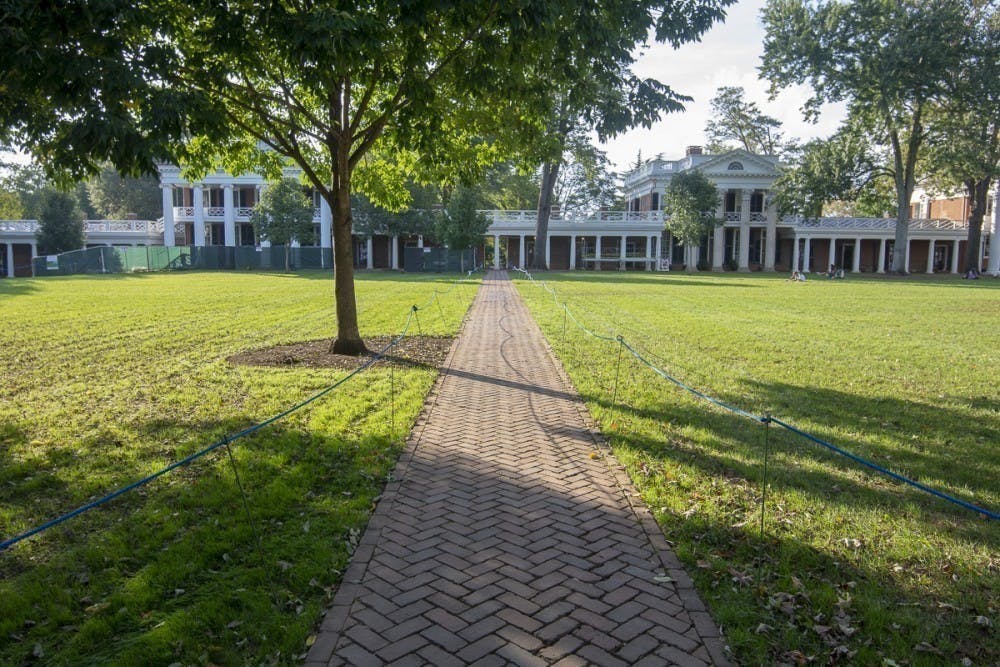Living on the Lawn during your fourth year is widely recognized as one of the highest honors at the University. The Office of the Dean of Students — which administers the selections process — proclaims that it “recognizes students for unselfish service to the University and Charlottesville/Albemarle County communities, and achievement in their respective fields of activity and academics.” To live on the Lawn, students must submit an application to the 60-person Lawn Selection Committee, which then ranks all the applicants. The 47 top-ranked applicants are then selected as residents.
Ideally, such a system would provide an equal playing field for all applicants. The incumbent system is well-intentioned in its efforts to do this — the selection committee is composed solely of students, and a wide variety of student organizations — from student self-governance institutions to multicultural groups — are represented. However, the current process — specifically its use of the ranking system — does not adequately provide an equal opportunity to all applicants. It specifically disadvantages transfer students, student workers and first-generation and low-income students. The Lawn selection process must be reformed to randomize the final selection of Lawn residents and ensure an equal playing field for all students.
While ODOS encourages all students to apply, regardless of their academic or extracurricular background, the process is wildly self-selecting. The culture of the University has constructed a stereotype for Lawn residents — a specific type of person, if you will — and prospective applicants are often deterred from applying because they think they don’t fit who or what the Selection Committee is looking for. Their GPA is too low, they aren’t as involved as some of their peers or they participated in non-traditional forms of student engagement. The current selection process reinforces this — the act of ranking students inherently and arbitrarily values some students over others.
While ranking applicants based on the supposed quality of their service to the community seems reasonable on paper, in practice it disadvantages students who have shorter — not necessarily weaker — resumes or who worked as student employees. Privileged students who had the means to engage in extracurricular activities will oftentimes be overvalued, while students who had to work student jobs will nearly always be undervalued. Students who transferred their second or third year will be looked down upon as lesser-quality students.
Ranking students based on their achievements inevitably results in social bias. The requisite “unselfish service” students are expected to perform can be done by anyone and in any way. It is not exclusive to students in the upper echelons of student-self governance institutions or enrolled in the so-called elite major programs. The ranking system is unfortunate or unlucky at best, and it is implicit bias in action at worst.
The University can alleviate these issues with the Lawn selection process by reforming the system and adopting a hybrid approach — with students submitting some initial form in order to be entered into a randomized lottery system, and with final decisions left to chance. As opposed to the ranking system, a hybrid system ensures that Lawn residents will still be actively engaged in the community while also eliminating the implicit biases against transfer students, student workers and first-generation and low-income students. Removing the ranking system removes many arbitrary personal biases and ensures the Lawn is accessible to all students — regardless of when they started their journey at the University or whether or not they checked the boxes on the metaphorical Lawn checklist.
Getting paid for work does not negate its importance to the functioning of our community. Selection committee members would not be asked to rank whether a student working the circulation desk in Clemons Library is more deserving than a student adjudicating Honor offenses. Both are equally essential to the functioning of the University — one supporting our academic integrity, and the other strengthening our system of student self-governance — and thus both deserve equal chances to live on the Lawn.
Reforming an already difficult-to-construct selection system is no easy task. The University must ensure an equal playing field for all students, a diverse applicant pool and a Lawn cohort which more adequately reflects the University community.
Noah Strike is an Opinion Columnist for The Cavalier Daily. He can be reached at opinion@cavalierdaily.com.
The opinions expressed in this column are not necessarily those of The Cavalier Daily. Columns represent the views of the authors alone.







